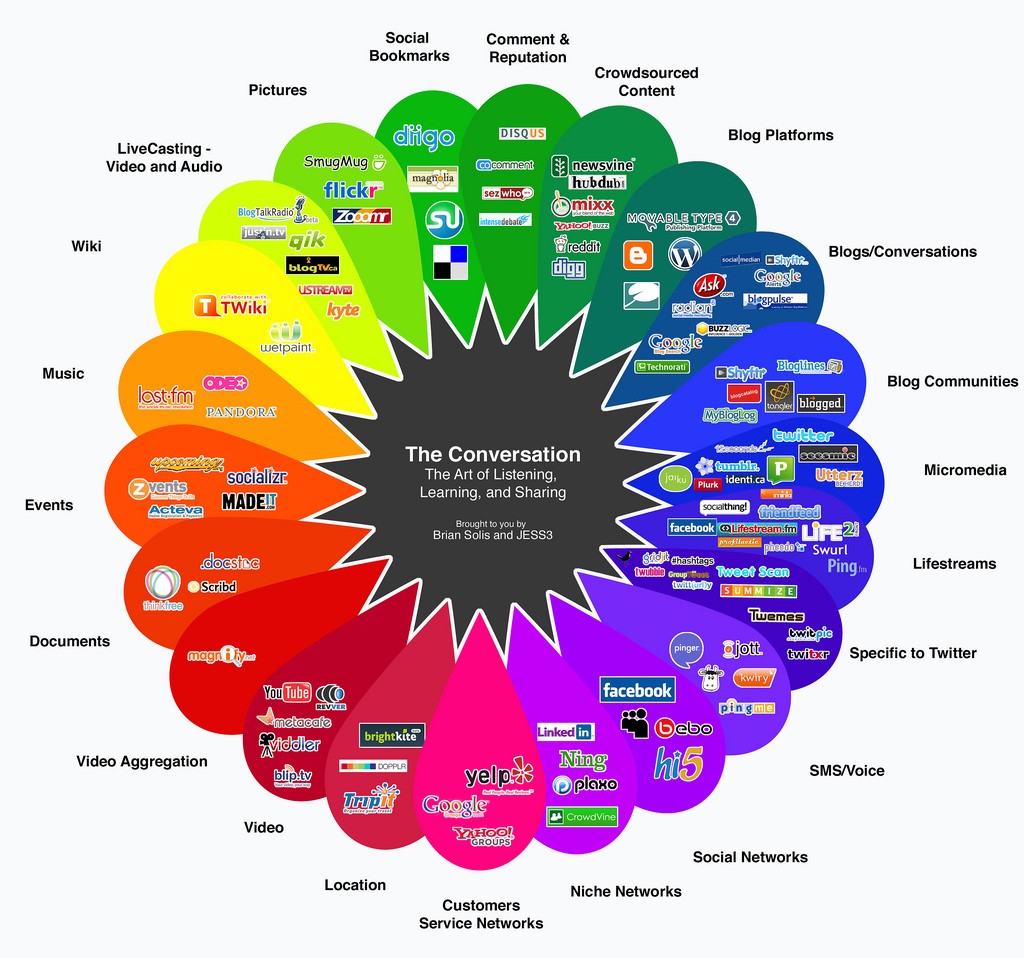One of the most frustrating things that happens during my meetings with potential clients is the “shifting in the seat” that occurs whenever I talk about Social Media. “You mean, for us?” Despite my best efforts and handing out of copies of Groundswell or talking about the big “billion” users prediction, and explaining the massive graying of social networks, Social Media is still often perceived as a time-wasting, edgy, esoteric practice for teenagers often shunted to the I.T. department along with the company website. I admit, I’m still looking for the right approach to the conversation about the huge potential and risk reduction this kind of activity brings.

So it always excites me to see well-executed studies like this study presented by Cone Research of 1092 adults aged 18 or older who were asked about what they thought of companies participating in Social Media.
- 60 percent of Americans interact with companies on a social media website.
- 25% interact with companies on a social media website more than once per week.
- 93% of Americans believe a company should have a presence in social media.
- 85% (!!!) believe a company should be active with customers in social media.
- 56% of Americans feel both a stronger connection with and better served by companies when they can interact with them on a social media environment.
- Men are twice as likely to interact frequently on social media frequently
- 30% of the difficult 18-34 group believe that companies should use social media to market to them.
- 30% of those with household incomes over $75,000 believe companies should market to them via social media, and two thirds of these people say they feel a stronger connection to companies they interact with in this way.
These are impressive numbers. When asked in detail about the interactions that they ‘expect’
- Companies should use social networks to solve my problems (43%)
- Companies should solicit feedback on their products and services (41%)
- Companies should develop new ways for consumers to interact with their brand (37%)
- Companies should market to consumers (25%)
Here’s the thing this study amplifies.
Social Media Engagement is not something you learn on a corporate off-site. It’s not something you leave to your I.T. guys/gals. It’s not something you can ignore.
It takes time and commitment. It takes practice and thoughtfulness before you actually need to depend on it to save your rear. To be less familiar with social media than your consumer, or to expect they won’t notice your social media incompetence is a very dangerous position to be in when the whole world is watching.
chart from Brian Solis used under Creative Commons Attribution 2.0 License








I would offer some pithy tome here, but all that needs to be said is, “Amen.”
Nice work.
Thanks for referring to my blog post on Making the case for Social Media tracking, and haven’t.
If you think about it – Business doesn’t buy what it thinks it doesn’t need – at least, that’s my perception. The reason why Paid Search and now Web Analytics are highly invested in, at least in most of the places I deal with, is they provide leverage and it’s measurable (some would argue that, of course).
As soon as the $$$$ signals come on line – and it can be shown that Social Media, as an overall activity, contributes significantly to the bottom line, across the board at many business – I don’t think you’ll have much problem selling it – just my take on it.
Hope that helps contribute to the conversation –
Marshall
I’ve never been more happy to have an in-link with the anchor text “social media incompetence” ;)
As Jason said, AMEN! There’s a lot of good stuff in the post. You’re right to suggest the Groundswell/Forrester resources to your readers. Those folks – and that book – is just about the best “meat ‘n’ potatoes” content for marketers these days.
Thanks again and great work!
E-commerce has been late to adopt social strategies, but they will have to follow too. The laws of physics say a body in motion remains in motion until an equal and opposite force comes into play…….no way to stop the social forces of the internet. Watch out for Pipit Purch.